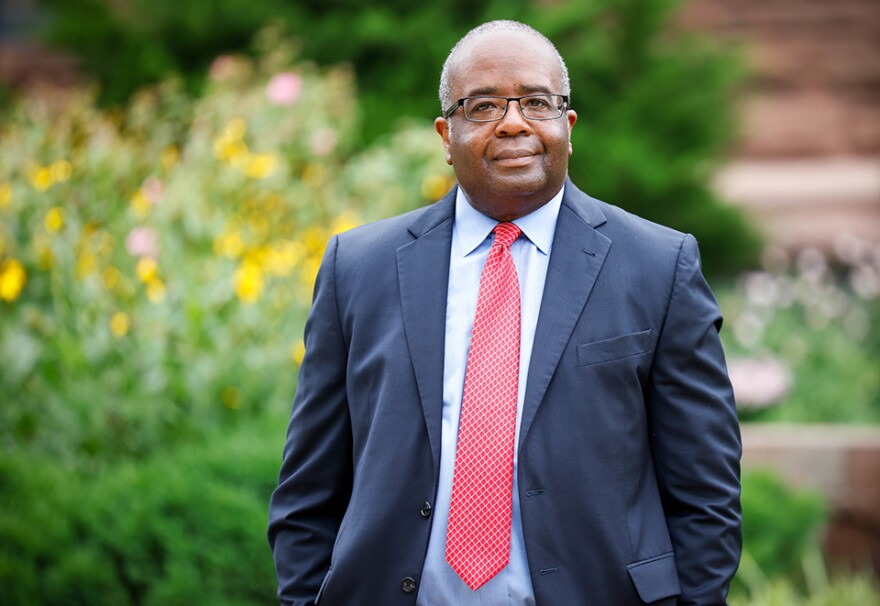The Civil Rights Movement is often talked about as an echo of history, one that concluded eons ago with its citizens attaining equal rights no matter their racial identity, physical ability or religious practice.
The fact of the matter is that Americans are just a generation or two separated from a country that embraced the policies of “separate but equal” — it was an equality that included white people firebombing churches and lynching innocent Black people.
For professor Travis Threats, that era is anything but distant history. The chair of St. Louis University’s Department of Speech, Language and Hearing Sciences, Threats is the grandson of Mae Bertha and Matthew Carter, parents who dared to force the State of Mississippi to recognize the injustice of segregated of public schools.
Threats shared the story of his grandparents’ fight for equality during the Civil Rights era on Wednesday’s St. Louis on the Air. The Carters were sharecroppers on the Pemble plantation outside Drew, Mississippi. In 1965 — one year after the passage of the Civil Rights Act — they filed paperwork for seven of their 13 children to enroll in the schools nearest their home. The school enrolled was composed entirely of white students.
Threats’ grandparents were met with harassment, murder attempts and eventual eviction from their home.

“[The Black schools] got the hand-me-down books that have been written in, torn, in disrepair,” Threats said. “A school that was in disrepair, no bus service. [My grandparents'] goal wasn’t, ‘We want to go to school with white people.’ It was, ‘We want to go to a better school.’”
His grandmother’s education stopped in third grade. Threats, who has a doctorate, said she still knew that education was the only way for her family to have actual “freedom of choice.” She and her husband had to remain steadfast in their efforts to simply enroll their children in the best public schools available to them.
“They knew that it was for a greater cause, and the greater cause was not just their children, but all children in their right to get a superior education,” Threats said. “[My grandmother] always said, ‘You don’t get an education just to get a job. You get an education so you don’t believe anything anybody tells you. It was to be a learned person … it was important to develop [children] as people and as citizens.”
Once Threats fully understood the magnitude of his grandparents' battle with the State of Mississippi, school leadership and white community members, he said that his family never pressured him to excel in his studies. He did, however, feel a strong sense of responsibility. “I’m certainly not going to squander an education that is not so stressful and hard for me,” Threats said. “People have been killed over me being able to go to school. My own family had done this. How could I disappoint my family being given this and then not take advantage?”
The 1996 book “Silver Rights” recounted the adversity the Carters endured. During the book tour, Threats recalled that his grandmother Mae Bertha Carter would make a point to mention him — her grandson who became a doctor.
“I felt very happy to have fulfilled her dreams,” he said, “Because this is probably further than she thought would happen in just two generations.”
For more on Travis Threats’ family, their direct impact on desegregating schools and how he carries his grandparents’ legacy in his efforts to diversify the field of speech pathology, listen to St. Louis on the Air on Apple Podcast, Spotify or Google Podcast, or by clicking the play button below.
“St. Louis on the Air” brings you the stories of St. Louis and the people who live, work and create in our region. The show is produced by Miya Norfleet, Emily Woodbury, Danny Wicentowski, Elaine Cha and Alex Heuer. Roshae Hemmings is our production assistant. The audio engineer is Aaron Doerr. Send questions and comments about this story to talk@stlpr.org.







